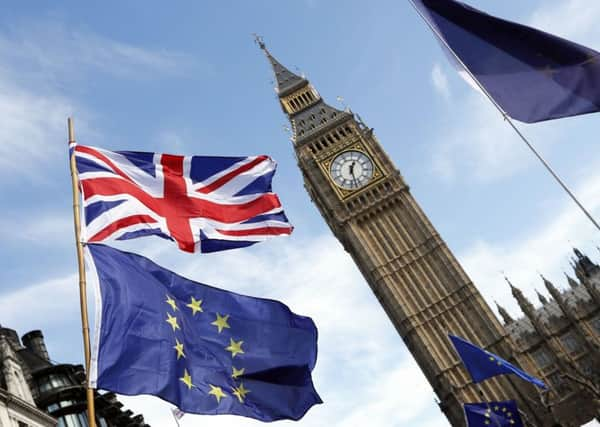Paul Blomfield: An independent Britain still needs strong EU links


Those of us born since 1945 find it difficult to imagine, but throughout history Europe has been the bloodiest continent on earth. We spent centuries killing each other. I’m the first generation in my family to have lived a full life in a continent free of war. My grandfather served in the trenches of the First World War and my father was a RAF pilot in the Second World War. After the horrors of that conflict, politicians across Europe dreamt of a new way forward.
The dream was of a continent in which independent nations traded together, worked together and crossed borders freely, making war unthinkable. It led to the Treaty of Rome, the 60th anniversary of which was celebrated on Saturday, and the European Union. It was underpinned by the alliance with the United States, so important in achieving our freedom in 1945, which was embedded in the North Atlantic Treaty Organisation (Nato).
Advertisement
Hide AdAdvertisement
Hide AdThese carefully constructed agreements have delivered seven decades of peace and stability, unprecedented in our history. They have helped to embed democracy and human rights in those countries which faced authoritarian rule in recent years. Spain and Portugal’s future after fascism, Greece’s liberation from a military junta, and Eastern Europe’s journey from totalitarianism were all assisted by the common values required by membership of the EU.
Today this settlement is threatened. We have an American President who, breaking with 70 years of US foreign policy, talks of Nato as “obsolete” and encourages the collapse of the EU by calling on other countries to follow Britain out. These are objectives shared only by Vladimir Putin, causing mischief on Europe’s eastern border, and by far-right leaders like France’s Marine Le Pen who met him in Moscow this weekend.
We may be leaving it, but a strong European Union remains in Britain’s interest. It is important to the stability and prosperity of our continent, and therefore our country. That should be the starting point for the negotiations. It should set the tone for the discussions with our friends and neighbours in the other 27 EU countries. It also sets the tone for the discussions we need across Britain. We voted to leave, but by the closest of margins and with great regional variations.
After a divisive referendum, there was a need was to bring people together. By allowing the extreme euro-hostile fringe of her party to set the agenda, Theresa May is ignoring the concerns of many and taking enormous risks. Their desire for a total rupture with Europe not only risks our stability, but our future prosperity.
Advertisement
Hide AdAdvertisement
Hide AdThey have begun to talk with relish about the prospect of reaching no deal on our future relationship with the EU. That sets them on a collision course with most of business and industry. Manufacturers facing 10 per cent tariffs on exports, farmers facing up to 40 per cent and financial services facing the loss of ‘passporting’ rights are understandably worried.
While telling a House of Commons Select Committee that “it’s not as frightening as some people think”, Brexit Secretary David Davis admitted that the Government has carried out no assessment of the economic consequences of crashing out without a deal. Accounting for 44 per cent of our exports, the EU is our most important trading partner. European Council President Donald Tusk has been clear that no deal would be bad for everyone. Securing that deal must be the Government’s top priority, and it must offer what Davis promised Parliament, the “exact same benefits” as being in the single market and customs union.
But our future relationship doesn’t stop there. We are members of many joint agencies – from the European Atomic Energy Community, overseeing nuclear safety and supporting research, to the European Medicines Agency, helping drugs to market and protecting patient safety. There’s no reason why we should cease our membership of these bodies, although many in Government want to break these links too.
We can maintain the rights and protections that we gained through the EU too, in areas from employment to the environment. We can still work together in protecting our security, developing foreign policy and combatting climate change.
Advertisement
Hide AdAdvertisement
Hide AdAfter March 2019, we will no longer be a member of the EU, but we can maintain a strong and collaborative relationship, based on our common interests and shared values. That should be our goal.
Paul Blomfield is Labour MP for Sheffield Central and Shadow Minister for Exiting the European Union.